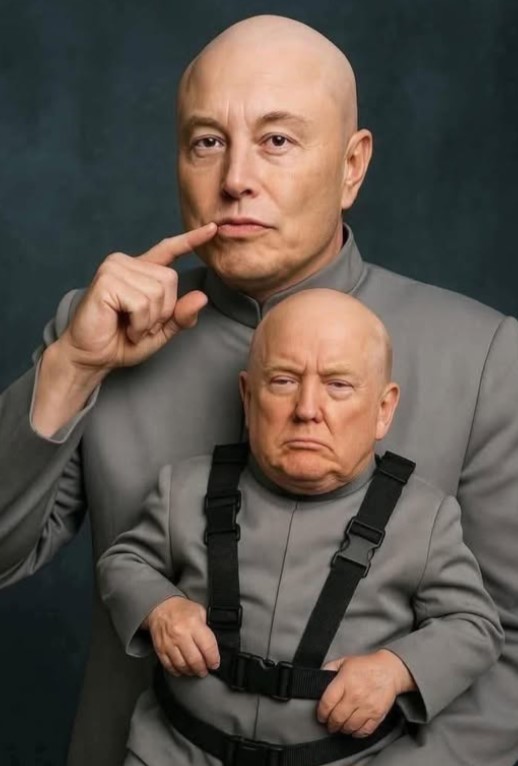Is Donald Trump a Puppet for Elon Musk? A Closer Look at the Growing Speculation
In the ever-evolving landscape of American politics and tech industry influence, a provocative question has begun circulating online and in political discourse: Is Donald Trump merely a puppet for Elon Musk? While the claim may seem sensational on the surface, it’s a conversation rooted in the increasing intersection of wealth, power, and influence between billionaires and political leaders.
The Origins of the Speculation
The theory gained traction following several public displays of alignment between the former president and the tech mogul. Elon Musk, CEO of Tesla, SpaceX, and X (formerly Twitter), has in recent years stepped into the political spotlight—commenting on everything from free speech and environmental policy to immigration and foreign affairs. Trump, now a central figure once again in American politics ahead of the 2024 election, has openly praised Musk’s ambitions and accomplishments.
Supporters of the theory point to Musk’s acquisition of Twitter, rebranding it to “X,” and his stated commitment to restoring “free speech” on the platform. The platform has since become more politically charged, with Trump’s return to X after being reinstated drawing millions of views. Critics argue that Musk’s stewardship of the platform has aligned it more closely with Trump’s political messaging, offering him a new, unfiltered megaphone.

Mutual Interests, Not Manipulation?
However, political analysts caution against framing the relationship as one-sided. “Calling Trump a ‘puppet’ implies a lack of agency,” says Dr. Amelia Park, a professor of political communication at Georgetown University. “In reality, both men benefit from the alliance. Trump gains a platform with global reach, and Musk benefits from favorable policies or public support from a populist leader.”
Musk has publicly distanced himself from the Republican establishment on several occasions, framing himself as an independent thinker who supports policies and candidates based on logic rather than loyalty. However, he has expressed support for certain Trump-era policies, especially those involving deregulation and business incentives for innovation and infrastructure.
Power, Influence, or Coincidence?
The idea of billionaires influencing political figures is not new—what’s different now is how visible and direct these relationships have become. Unlike traditional lobbying or campaign donations, today’s alliances often play out publicly, in tweets, livestreams, and collaborative interviews.
While there is no concrete evidence that Trump takes direct instruction from Musk, the synchronicity in their public messages and mutual endorsement of each other’s platforms and policies has raised eyebrows. Both appeal to a similar base—populist, anti-establishment, tech-savvy, and skeptical of mainstream narratives.
What It Means Going Forward
Whether or not Trump is a “puppet” of Musk, the growing overlap between powerful tech figures and populist politicians is reshaping American political dynamics. As both men continue to dominate their respective spheres—Trump in politics and Musk in technology—their influence may prove symbiotic rather than hierarchical.
In the end, the real question may not be whether Trump is Musk’s puppet—but how much sway billionaires can or should have over democratic institutions.
